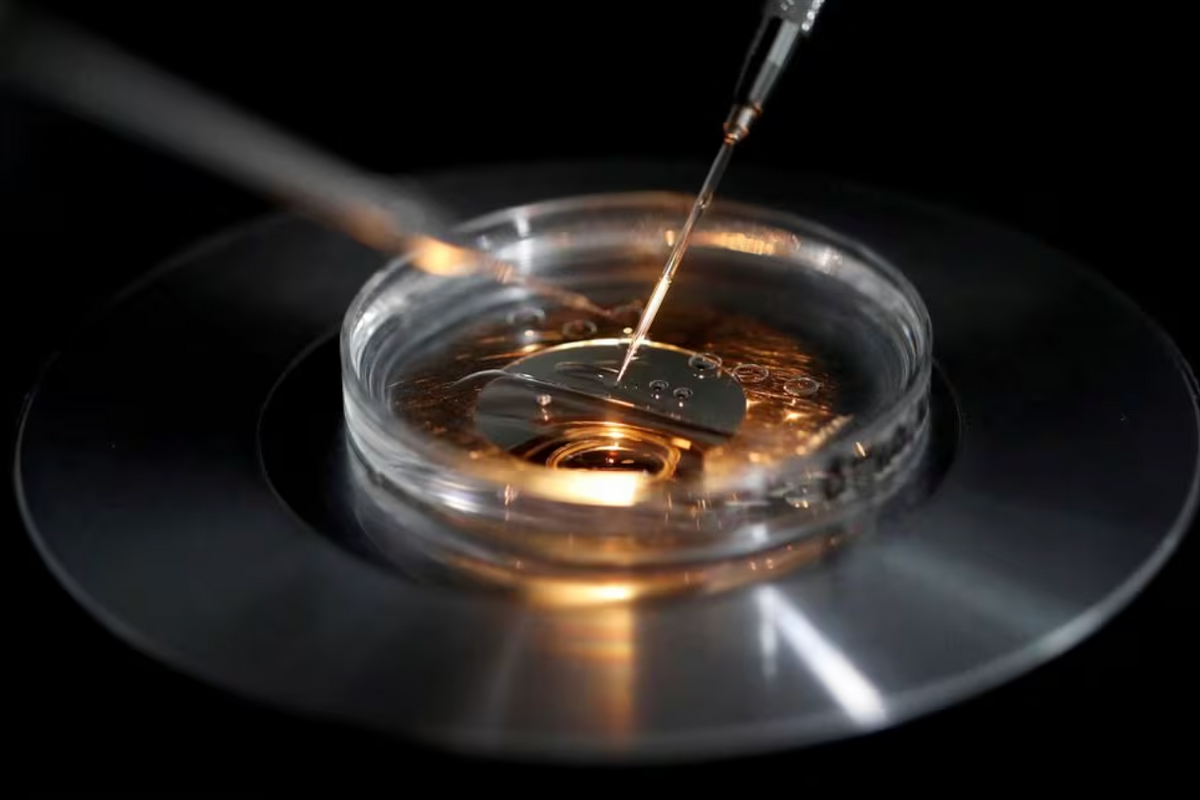Alabama's Law Protecting IVF Embryos Is Wrong -- But Consistent

A medical lab technologist fertilizing an IVF embryo
I'm not here to join the mockery of Alabama for declaring that embryos are children — and, therefore, in vitro fertilization clinics must protect them forever. On the contrary, I admire its honesty. Many states have effectively banned abortions, arguing that destroying an embryo amounts to baby killing. Yet they look the other way when fertility clinics discard hundreds of thousands of unused embryos, which they routinely do.
Let's be clear. I believe in the right to an abortion within a reasonable time limit and whenever the mother's life is in danger. Mothers-to-be often refer to the cluster of cells that constitute the embryo as a "baby," which is understandable. Science does not.
Nevertheless, an Alabama court ruled that frozen embryos resulting from IVF treatments are considered children under the law. Other states have hypocritically gone halfway in that direction. Some of their fetal personhood laws let women sue for back child support since conception.
Give Alabama credit for walking the walk.
Biologically speaking, there is virtually no difference between an embryo created through IVF and one conceived naturally. And that's what the Alabama court is saying.
Fearing the political repercussions, however, Republican lawmakers in Alabama are trying to weasel out of the consequences. They are working on proposals to redefine a frozen fertilized egg as "potential life," as opposed to the fully human one inside the uterus.
Baloney. Both kinds of fertilized eggs are potential life.
Some pro-life advocates hold that while most of the embryos created in IVF clinics will never be used, the clinics enable couples to create life that wouldn't have happened without them. That's a valid argument.
But for the true opponents of abortion, that argument is one of political convenience. Former President George W. Bush made a show of pushing for adoptions of frozen embryos by women who would have them implanted. He called the embryos "snowflakes."
But fertility centers continued to discard unused embryos. Bush never threatened to close them down or force the IVF clinics — and the egg and sperm donors — to preserve them in perpetuity.
Another dodge by alleged abortion foes is the exception for rape and incest. Many politicians throw that in their abortion bans because it sounds only fair to victimized women. But if a fertilized egg represents innocent life, then the circumstances of the conception should not matter.
The pro-choice movement often aids that phony argument by condemning abortion bans with the words, "They don't even allow an exception for rape and incest." Darn right there should be no exceptions.
Democrats like Illinois Sen. Tammy Duckworth have foolishly helped take states that ban abortion off the hook by offering legislation that would protect IVF services nationwide. No, their politicians should live with the fallout of declaring that an embryo is a baby.
The pro-choice stance should be that a woman has a right to end an unwanted pregnancy early on and for whatever the reason: rape, an unwise night of unprotected sex, failed birth control — no questions asked. Certainly no woman should have to present police evidence that she had been brutally violated.
In the wake of the Alabama ruling, there's been an explosion of memes about listing fertilized eggs as children on tax returns and using a box of chicken eggs to get access to high-occupancy vehicle lanes. They can be pretty funny.
But those who support a constitutional right to abortion should also praise Alabama for stripping away the veils that provide phony exceptions to the protection of embryos.
Alabama has bravely followed through on its position that a fertilized egg is a child. The position may be biologically false and politically dangerous, but give the state credit for honesty.
Reprinted with permission from Creators.








Trump Cabinet Nominee Withdraws Over (Sane) January 6 Comments